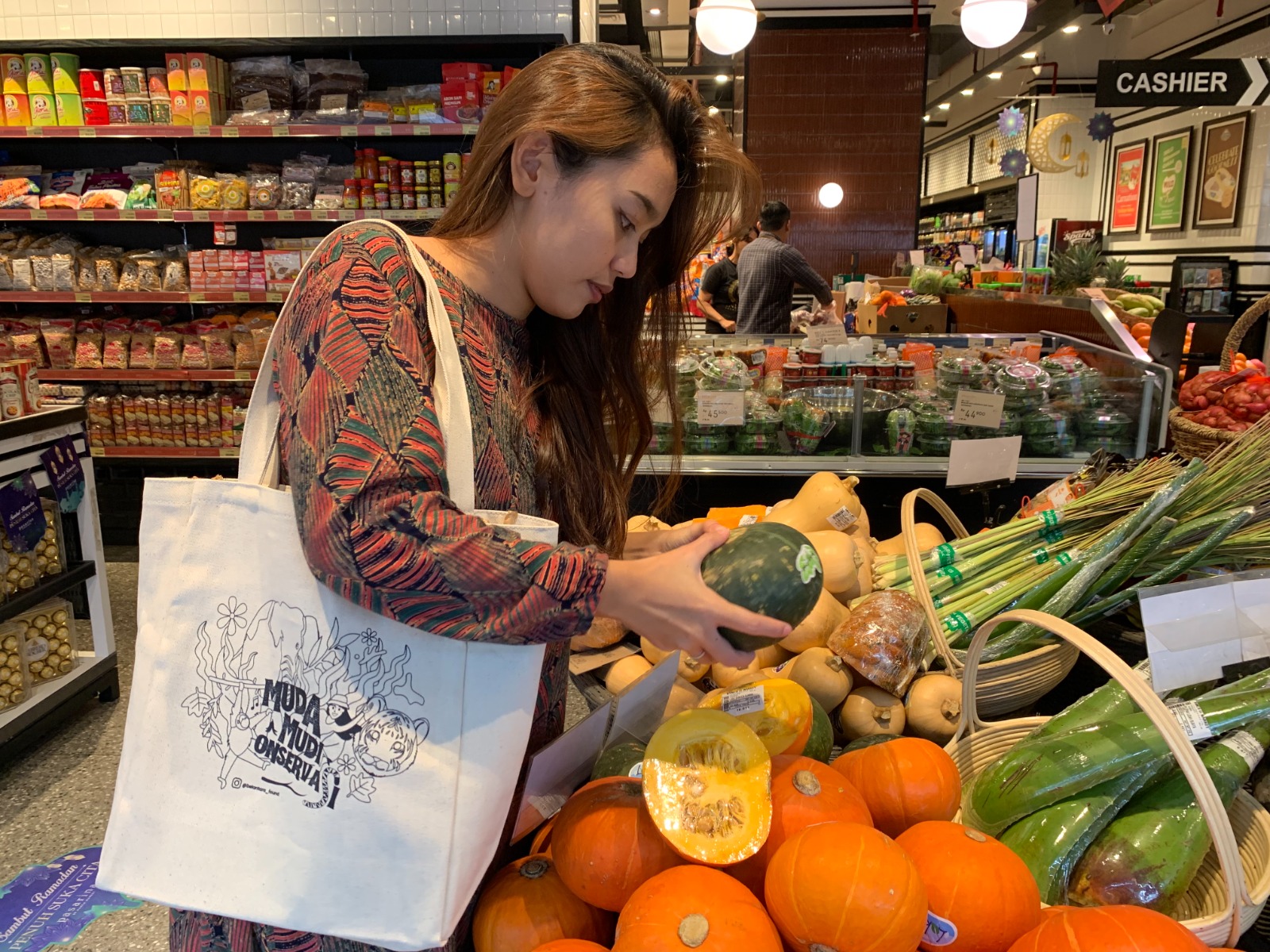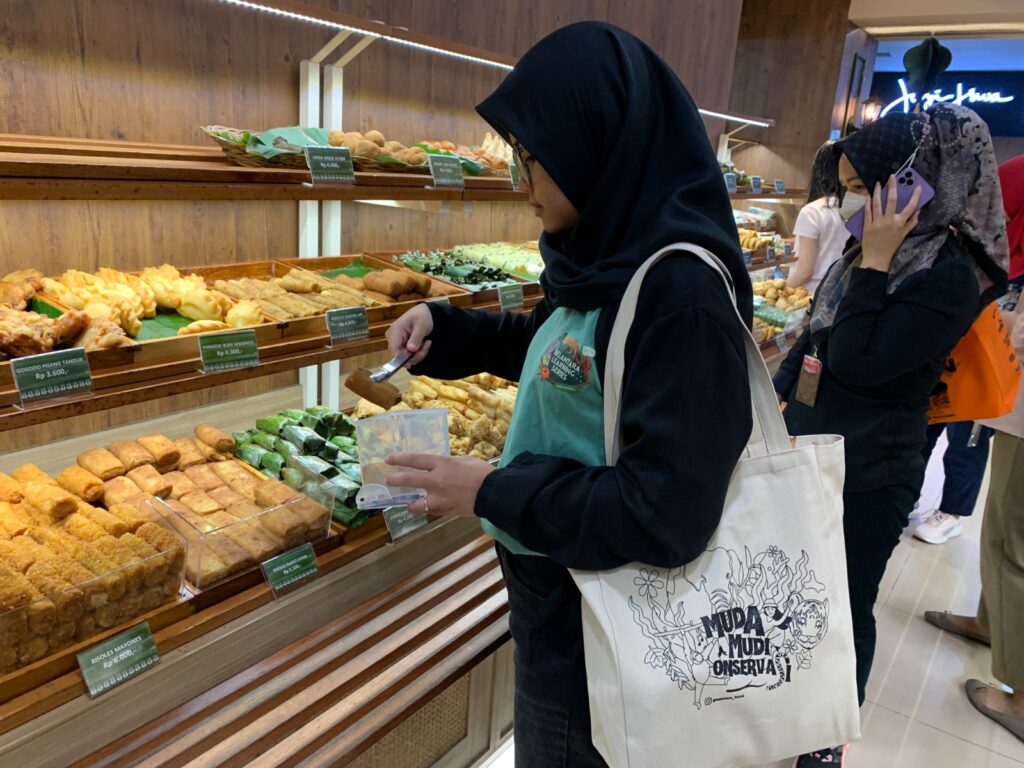To encourage Society to Adopt a Sustainable Lifestyle, the Climate Change Philanthropy Cluster Initiated the Green Ramadan Movement

The United Nations Environment Program estimates that 23 to 37 million metric tons of plastic will flow into the ocean annually by 2040. This amount is equivalent to 50 kilograms of plastic per meter of coastline worldwide or the equivalent weight of 178 Symphony of the Seas ships. It is the largest cruise ship in the world. Most plastic waste comes from land pollution sources that must be appropriately handled.
Based on data from the Ministry of Environment and Forestry of the Republic of Indonesia, in 2023, there was an increase in waste accumulation of 20% during Ramadan. The highest waste composition in Indonesia is dominated by organic waste in the form of food waste, reaching 41.2%, followed by plastic waste at 18.2%. Meanwhile, household waste accounts for the most significant amount of national waste, up to 39.2%.
Plastic waste is a type of waste that threatens health and the environment. The impacts of plastic waste include the fact that if it is burned openly, it can cause air pollution, which can cause cancer. Microplastics and nanoplastics have even polluted various ecosystems and can even be found in human blood, which can increase the risk of heart disease and stroke. In larger doses, it can cause a severe skin disease called chloracne. Apart from that, plastic waste can also pollute water and soil, disrupting food chains and ecosystems.
Plastic waste can clog channels or rivers in specific amounts, causing flooding. One action that can be taken to reduce this impact is by adopting a sustainable lifestyle. A sustainable lifestyle is one that pays attention to the balance between human needs and environmental sustainability and sustainability. This lifestyle considers environmental, social, and economic impacts to support long-term prosperity so that future generations can also inhabit the environment.
A sustainable lifestyle is essential because it has various benefits, including significantly preserving biodiversity, improving air and water quality, reducing house gas emissions, empowering the local economy, and improving individual health.
Examples of sustainable lifestyles that can be implemented in everyday life include carrying shopping bags and drinking bottles and environmentally friendly cutlery, doing 3R (Reduce, Reuse, Recycle), using public transportation, saving water and electricity, planting trees, and supporting environmentally friendly local products.


Therefore, organizations that are members of the Climate Change Philanthropy Cluster initiated a Green Ramadan movement. #GreenRamadan2024 is a joint movement to invite people to actively participate in implementing a sustainable lifestyle during the month of Ramadan to create a sustainable and sustainable environment.
The main goal of the Green Ramadan movement is to invite people to adopt a sustainable lifestyle to create a sustainable and sustainable environment. Executive Director of the Belantara Foundation, who is also the Coordinator of the Climate Change Philanthropy Cluster, Dr. Dolly Priatna, said that the Green Ramadan movement also aims to increase people’s awareness and understanding of the importance of protecting and preserving the environment around them.
“We will continue to invite people to adopt a sustainable lifestyle. “The hope is that through this movement, we can support the targets of the Sustainable Development Goals (SDGs),” said Dolly, a lecturer at the Postgraduate School at Pakuan University.
This requires active collaborative steps to achieve a comprehensive and sustainable solution that encourages adopting a sustainable lifestyle. One of them, through the Climate Change Philanthropy Cluster, is a forum for the active involvement of philanthropic institutions in overcoming environmental problems and a discussion forum for environmental observers.
“We must strengthen and increase cooperation between philanthropic activists to reach a wider community and have an impact in implementing a sustainable lifestyle. “#GreenRamadan2024, the Climate Change Philanthropy Cluster, shows an example of effective multi-stakeholder collaboration by utilizing the potential of existing programs and strengthening them through close coordination with its other members,” added Gusman Yahya, Executive Director of the Filantropi Indonesia.
Arif Rahmadi Haryono, General Manager of Dompet Dhuafa, stated that the essence of Ramadan is holding back. One aspect is to refrain from consumerism, which has the potential to damage the environment. The green Ramadan movement is inspired by the spirit of fasting while encouraging environmental recovery in Indonesia. In this month of Ramadan, we are committed to reducing the use of single-use plastic waste by distributing 3,150 eco takjil using environmentally friendly packaging in 24 regions throughout Indonesia as well as strengthening and providing assistance to MSMEs who sell eco takjil to produce environmentally friendly takjil merchandise. and managing waste at the Dompet Dhuafa empowered market.
The Green Ramadan 2024 activities include an Instagram live series, photo competition, national webinar, educational content about the importance of implementing a sustainable lifestyle on Instagram, tree alms, and eco takjil. This series of activities was carried out for approximately 30 days, from 10 March 2024 to 10 April 2024.
The Climate Change Philanthropy Cluster members involved in this movement are the Filantropi Indonesia, Dompet Dhuafa, Belantara Foundation, Protect Forest, IDFOS Indonesia, CIS Timor, ESWKA Foundation, Greeneration Foundation, and Communication for Change.

